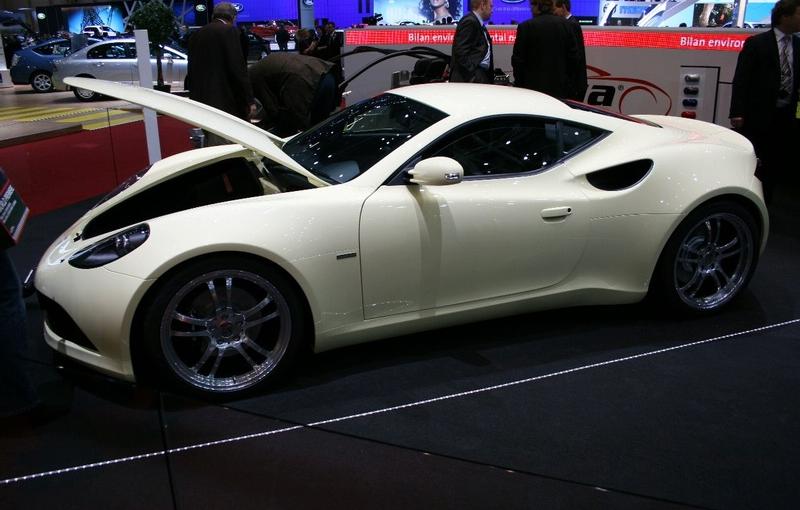 One would think that the last thing this world needs is another car manufacturer, unless, of course, it's an ecologically relevant one like Tesla, Fisker, Think, or Ligier. A new sports car brand surely is only a recipe for commercial disaster. But Artega, a new German maker of sports cars, has conceived a very different product. "There are many things Artega is not," states Karl-Heinz Kalbfell, a longtime German automotive executive who has held top posts at BMW, Rolls-Royce, Alfa Romeo, and Maserati, and who has served as chief adviser to the Artega team since 2006.
One would think that the last thing this world needs is another car manufacturer, unless, of course, it's an ecologically relevant one like Tesla, Fisker, Think, or Ligier. A new sports car brand surely is only a recipe for commercial disaster. But Artega, a new German maker of sports cars, has conceived a very different product. "There are many things Artega is not," states Karl-Heinz Kalbfell, a longtime German automotive executive who has held top posts at BMW, Rolls-Royce, Alfa Romeo, and Maserati, and who has served as chief adviser to the Artega team since 2006."We're not a cottage car manufacturer, we are not in the bespoke business, we are not a coachbuilder, and we are going to stay well clear of the supercar segment. Our main stakeholder is Paragon, a leading Tier 1 systems supplier, and our mission is to occupy the niche that separates the high-volume from the tiny-volume sports car manufacturers." Artega's means to this end is the GT, a relatively affordable, mid-engine, two-seat coupe aimed at performance- and handling-oriented enthusiasts.
And here it comes, fresh out of the car wash, the new Artega GT: Shorter than a Honda Fit (157.9 inches), wider than a Mercedes-Benz S-class (74.0 inches), nearly as low as a Lamborghini Gallardo (46.5 inches). Designed by Henrik Fisker of BMW Z8 and Aston Martin DB9 fame and now head of his own eponymous company. Powered by the Volkswagen Group, which agreed to sell its latest direct-injection VR6 engine and dual-clutch transmission to Paragon. Engineered in-house by a young crew of enthusiasts. Supported by renowned suppliers like BASF, Bilstein, Bosch, Brembo, Eibach, Hella, and Michelin. Built in a brand-new factory on a dedicated greenfield site in Delbrück, between Frankfurt and Hanover. Financed by a €20 million (approximately $29 million) budget, which covers more than just phase one of the gestation process. That's all very well, you say, but where is the special Artega touch? How does the GT differ from, say, a Porsche Cayman? "It's all in the mix," Kalbfell answers, smiling. "Thanks to the aluminum spaceframe structure, our car weighs only about 2425 pounds, undercutting the Cayman S by 550 pounds. This weight savings gives us a tangible acceleration and handling advantage.



















No comments:
Post a Comment